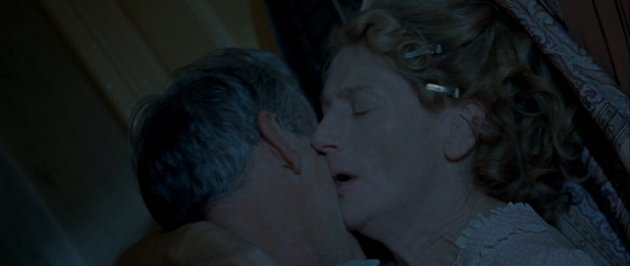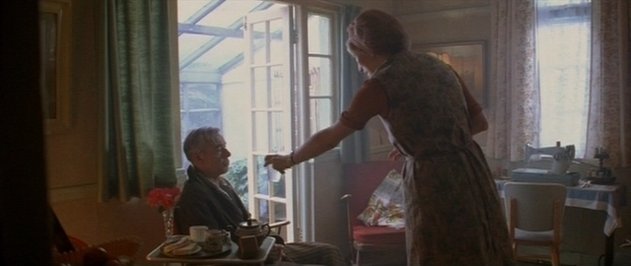 Disabled veteran George doesn’t get much screentime in Made in Dagenham, but that merely belies the size of the role disability and caregiving plays in the women’s rights movement. George would likely be diagnosed with Post Traumatic Stress Disorder today, and his wife Connie is not only the breadwinner for the two of them (working as a machinist in Britain’s Ford factory), but also George’s sole, unpaid caregiver. There was little understanding and even less treatment available for PTSD back then, and Connie can only describe George to others in her labor union as “touched”.
Disabled veteran George doesn’t get much screentime in Made in Dagenham, but that merely belies the size of the role disability and caregiving plays in the women’s rights movement. George would likely be diagnosed with Post Traumatic Stress Disorder today, and his wife Connie is not only the breadwinner for the two of them (working as a machinist in Britain’s Ford factory), but also George’s sole, unpaid caregiver. There was little understanding and even less treatment available for PTSD back then, and Connie can only describe George to others in her labor union as “touched”.
Connie, Rita O’Grady, and the other machinists in their all-female leatherworking shop realize that they’re being paid much less than their male counterparts for skilled work, and organize a strike. Connie has been the worker’s representative to management up to that point, but when relations break down she explains to Rita that she’d prefer to take a backseat in the struggle because she has to put George first.
To illustrate her domestic worries, one night shortly thereafter George wakes up screaming, and becomes combative when Connie tries to soothe him. Agitated, he makes for the door, worried that Connie will “try to put [him] away”. Connie embraces and reassures him. In a later deleted scene, Connie gives the confused and forgetful George his medication just before leaving for a union meeting, reminding him that he knows where she’ll be.
Later when Connie returns, she finds that without supervision, George has committed suicide.
Her fellow union machinists support her during George’s funeral, and later Rita uses George’s story to garner support for equal pay among the male workers. George’s service and the need to fight for what they believe in speaks to the union men in terms they can relate to, and they vote to support the women. With that and the help of Labour politician Barbara Castle, the female machinists win concessions from the British government, and a guarantee of equal pay in the future.



